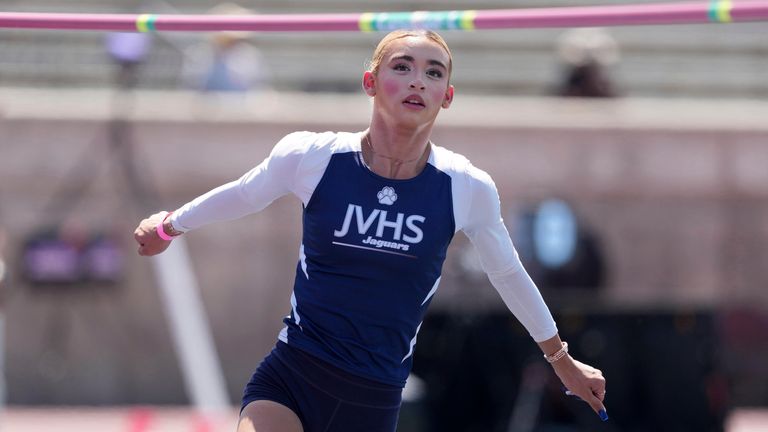'Sleepmaxxing': What is the viral trend, and will it improve your sleep?
As a journalist who does shift work - I'm obsessed with sleep.

I don't get enough of it, and it's pretty irregular when I do.
And so, when my Apple Watch informs me I've had more than 8 hours - with solid REM metrics - everyone will know about it.
'Sleepmaxxing' is a concept I came across on TikTok - it describes viral hacks to optimise your sleep, from drinking magnesium-laced 'Sleepy Girl' mocktails to sleeping with your mouth taped.
It's a trending topic - with millions of videos on it and search interest hit an all-time high earlier this year.
But what is 'sleepmaxxing', and does it work?
'A cornerstone of wellness'
The catch-all term is a wellness trend popular with Gen-Z and millennials - a perceived blueprint to help you catch a deeper, longer slumber.
It's a nod to 'looksmaxxing' - another TikTok trend popularised on the app, focused on enhancing physical attractiveness.
Sleep specialist Sammy Margo told Sky News it's a fad among those "who are increasingly prioritising sleep as a cornerstone of wellness".
Ms Margo said: "It typically involves creating elaborate bedtime routines, investing in sleep accessories, and tracking sleep metrics."
However, sleep expert Dr Neil Stanley is unimpressed - and says the practice is an unhealthy "obsession" that can often be counter-productive.
He told Sky News: "The worry about getting good sleep actually makes sleep worse.
"It is being done by people who sadly believe that things on TikTok have any resemblance to actual science."
What are the sleep trends?
According to the NHS, better sleep can be obtained through better diet and exercise, meditation and mindfulness.
However, for Gen-Z et al, it's a slightly more complicated - and creative - picture.
Trends include tech-free winddown-down periods an hour before bedtime; sleeping in cooler temperatures; blackout curtains and sleep masks; sleep tracking via smartwatches and sleeping with weighted blankets or cooling pillows.
And then… there are the viral trends.
The 'Sleepy Girl' mocktail
This viral drink has been made by thousands of TikTok users to help them sleep.
The mocktail combines magnesium power, tart cherry juice and lemonade - and has been popularised by the likes of viral bloggers including model Nara Smith, who in one TikTok video told her 11 million followers that her midwife recommended it to help her overcome sleepless nights.
However, according to sleep expert Dr Lindsay Browning at Trouble Sleeping, the evidence to suggest that the drink can result in better sleep is "generally weak" and from limited studies.
She told Sky News: "Magnesium has been associated with improved sleep but improvements are generally only seen when someone has a magnesium deficiency to start with."
Dr Browning has warned that excessive magnesium from the mocktail can also lead to diarrhoea - and may be problematic for those with kidney issues.
Mouth taping
What it says on the tin - and the goal is to prevent snoring and a dry mouth.
It can also help humidify the air through nasal passages.
However, Dr Browning warns that using tape to keep the mouth shut and to force nasal breathing "can be risky" - and can potentially lead to skin irritation and anxiety, particularly if the person doing it wakes up stressed and confused.
She told Sky News: "If you restrict breathing through the mouth, if the airway through the nose becomes blocked such as because of nasal congestion, the person will be unable to breathe properly.
"Stopping mouth breathing therefore does not solve problems caused by nasal congestion or undiagnosed sleep apnoea and can lead to difficulty breathing in the night, potentially worsening the problems, and means that the underlying cause is not resolved."
Kiwis before bed
Another trend is eating kiwi fruits before bed.
A study of 24 people found that eating two kiwis before sleeping could improve sleep.
However, this was a small-scale study and requires greater research before any conclusions about the efficacy of kiwis before bedtime can be reached.
Music playlists
Creating an atmosphere conducive to sleep is key - and music helps.
Freddie Moross, founder of Myndstream - a company specialising in music for health and wellbeing - told Sky News that the "surge in popularity of sleep music is undeniable".
"Sleep music is one of the fastest-growing genres of music.
"This trend is reflected in the consistent high ranking of editorial sleep playlists, like Apple Music's Sleep Sounds, which often sits at the top of the charts of their 200 programmed playlists and Spotify's top 3 sleep playlists accumulating over 9.5M monthly listeners.
Mr Moross adds: "Sleep music can be a valuable tool in signaling to the body that it's time to rest - instrumental music with a slower tempo, typically 60-80 beats per minute, is often most effective".
Looking beyond the trends, Dr Neil Stanley says the answer to better sleep is simple.
"You need just three things to help you sleep, a bedroom conducive to sleep, a relaxed body, and a quiet mind.
"Unfortunately, there is no money or clicks in common sense."
-SKY NEWS







